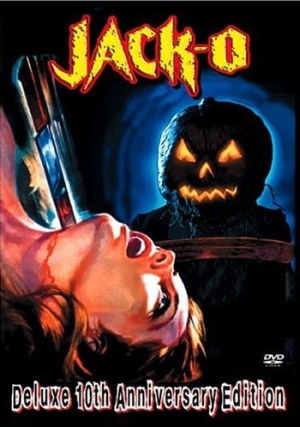LIBERTARIAN
SCREENWRITER BRAD LINAWEAVER SLAMS NEOCONS
by Thomas
M. Sipos, managing editor. [August 12, 2007]
 [HollywoodInvestigator.com]
Brad Linaweaver
always finds room to plug liberty in his sci-fi and horror tales, influencing
teenagers who don't read political blogs or opinion journals. [HollywoodInvestigator.com]
Brad Linaweaver
always finds room to plug liberty in his sci-fi and horror tales, influencing
teenagers who don't read political blogs or opinion journals.
"I've been getting
libertarian messages into everything for a quarter of a century," said
Linaweaver to the Hollywood Investigator. "Dafydd ab Hugh and I did four
novels for Pocket Books in the 1990s based on the Doom
video game. We worked in a lot of libertarian messages.
"When
the Marines are on their way to Mars in one of the books, they're passing
around a copy of Bureaucracy by Ludwig von Mises. I don't know how many 14 or 15-year-old boys reading Doom noticed that we were promoting Mises, but we were."
Linaweaver's
libertarian messages are more explicit in his original novels. In the Prometheus
Award-winning Moon
of Ice, the Nazis' kooky paganism takes full bloom after Hitler wins
World War II. And in Anarquia,
co-written with J. Kent Hastings, Falangists and Communists are both defeated
by Anarchists in the Spanish Civil War.
 Linaweaver
enjoys story credits on several films, such as Jack-O, The
Brain Leeches, The Low Budget Time Machine,
and Her Morbid Desires (part of The
Boneyard Collection). Linaweaver
enjoys story credits on several films, such as Jack-O, The
Brain Leeches, The Low Budget Time Machine,
and Her Morbid Desires (part of The
Boneyard Collection).
"My
involvement with movies has been mostly low-budget, exploitation stuff
where ideology is not that relevant. When you're writing science fiction
for a New York publisher, you actually achieve something when you slip
in a libertarian idea. But with independent, exploitation, low-budget Hollywood,
there's already an anti-authoritarian attitude. That culture is by nature
fairly libertarian. There's less need to be a propagandist."
As
a straight political pundit, Linaweaver has written for National
Review and been praised by no less than Ronald Reagan. "I've
been friends with William F. Buckley for many years," said Linaweaver.
"He's endorsed two of my books. Regarding Reagan, in late 1976 he did a
radio broadcast about one of the first articles I ever sold to a national
market. A piece called 'The Wish' that appeared in New
Guard, the magazine of Young Americans for Freedom. Reagan was saying,
'Brad Linaweaver, how right he is!' "
This
particular broadcast is reprinted in Stories
in His Own Hand: The Everyday Wisdom of Ronald Reagan. It's also available
on CD in Reagan's own voice.
 Linaweaver
is glad he didn't learn of Reagan's praise until decades after the fact.
"I never would have had my career in Hollywood. I might not have written
for Famous Monsters of Filmland, Cult
Movies, or Filmfax, nor worked on Attack
of the 60 Foot Centerfold. I might not have done the Sliders novels, or worked with Richard Hatch on Battlestar
Galactica novels. I might have been a boring political hack in Washington,
trying to capitalize on the Reagan endorsement to be a political speechwriter.
I'd be a worse libertarian than I am today." Linaweaver
is glad he didn't learn of Reagan's praise until decades after the fact.
"I never would have had my career in Hollywood. I might not have written
for Famous Monsters of Filmland, Cult
Movies, or Filmfax, nor worked on Attack
of the 60 Foot Centerfold. I might not have done the Sliders novels, or worked with Richard Hatch on Battlestar
Galactica novels. I might have been a boring political hack in Washington,
trying to capitalize on the Reagan endorsement to be a political speechwriter.
I'd be a worse libertarian than I am today."
What
kind of libertarian is Linaweaver? As he explains it, "I was never an anarchist.
I'm an Old Right conservative who became a libertarian in the early 1970s
when I realized the conservatism I believed in was dying under Richard
Nixon. I've always been a limited government minarchist trying to return
to what the Founding Fathers had in mind.
"I became a fellow traveler of
Reagan when he became president because Reagan had one goal that was in
line with both my Old Right conservatism and my minarchist libertarianism.
That goal was the end of the Soviet Union. And Reagan succeeded. That is
a great achievement. Every libertarian, including anarchists, should celebrate
Reagan's victory over the Soviet Union.
"But
after Reagan, the Republican Party went to hell in a handbasket. The idea
that I would have anything in common with the 'conservatism' of George
W. Bush is obscene. Richard Nixon is John Galt out of Atlas
Shrugged compared to Bush--and that's even with Nixon doing wage and
price controls. The Republican Party has fallen so low, there's not much
lower it can go.
"I'm
embarrassed that I temporarily supported the Bush war in Iraq. I was misled.
I had no idea I was supporting a utopian experiment. I've spent my whole
life
opposing utopian experiments. Now we have the American military trying
to achieve some kind of utopian democracy in Iraq. That drives me crazy.
I've always been fundamentally an isolationist. I want a small government.
You cannot have a small government and run the planet. It is impossible."
In
his 2006 essay collection, Post-Nationalism:
George
Bush as President of the World, Linaweaver elaborates on his foreign
policy views. "A handful of neoconservatives have killed off everything
I still cared about in the Republican Party. I predict the Democrats will
be in total control after the '08 election. There'll be a Democrat president
in the White House, whereupon I will expand Post-Nationalism into a larger book. My working title is Elephant's
Graveyard: How Neoconservatives Destroyed the Republican Party."
Copyright
2007 by HollywoodInvestigator.com.

|
